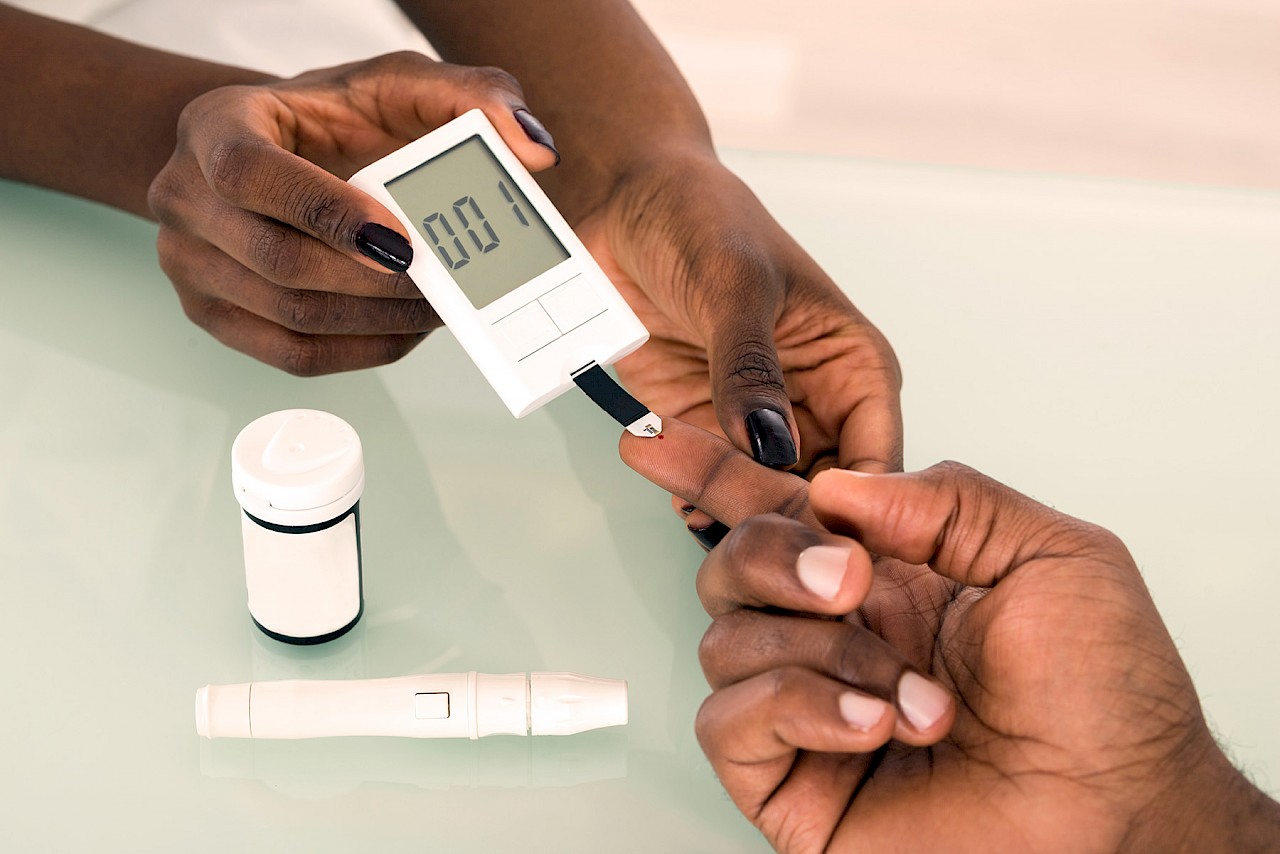March 2019
Back east, where I did my post-graduate training, my patients used to tell me “Doc, I got the sugar.” It turns out, that is a very accurate description of what diabetes is: elevated levels of sugar in the blood.
Sugar, or glucose, is the body’s fuel and we all require fuel to live. When you eat carbohydrates or sugars, your body breaks them down and releases them as sugar into your blood. As blood glucose levels in your blood rise after you eat, your body produces insulin to help all the cells of your body uptake glucose for immediate use and to store that glucose as a fuel reserve to use later.
TYPES OF DIABETES
Insulin is made in the pancreas. In type 1 diabetes, the insulin-secreting cells of your pancreas are killed off and your body stops producing insulin. In type 2 diabetes, your body becomes desensitized to insulin, so insulin no longer signals the body to store excess blood sugars.
When your body can’t keep sugar levels in check, the blood becomes more viscous (thicker like syrup), which makes it harder for your circulation system to carry blood, oxygen and nutrients throughout your body. Thicker blood also makes it more difficult for the other organs in your body to function properly. This is why diabetes can be so serious—it affects so many parts of the body.
RISKS OF DIABETES
Diabetes increases the risk of heart disease, nerve damage, kidney damage, peripheral artery disease, hearing impairment, stroke, and eye problems that can lead to blindness. The nerve damage interrupts the body’s natural feedback loop (you can’t feel pain in your feet, for example), so people sometimes don’t realize they have a problem until it has progressed to a dangerous level. Then, poor circulation slows down the healing process, making it hard to recover.
AVOIDING DIABETES
Although people cannot prevent type 1 diabetes, they can often slow or even prevent the onset of type 2 diabetes. Because of the strong genetic component in type 2 diabetes, it is especially important for those with diabetic family members to maintain a healthy diet, regular exercise, and annual screenings. If you are diagnosed with diabetes, the most important thing you can do is to stay on top of your self-care.
According to a study funded by the UCLA Center for Health Policy Research, almost half (48 percent) of adults in Mendocino County have pre-diabetes, a condition characterized by slightly elevated blood glucose levels that often leads to type 2 diabetes. The bad news is that people rarely know they have pre-diabetes because it typically has no symptoms; the good news is that with proper screening, you can get diagnosed and cured. Pre-diabetes is reversible.
Because there are often no symptoms, it is incredibly important to get an annual physical with your medical provider who will include a blood glucose check as part of your exam. Although pre-diabetes symptoms are rare, the Centers for Disease Control recommends getting screened for diabetes if you have any of the following symptoms:
- Urinate a lot, often at night
- Are very thirsty
- Lose weight without trying
- Are very hungry
- Have blurry vision
- Have numb or tingling hands or feet
- Feel very tired
- Have very dry skin
- Have sores that heal slowly
- Have more infections than usual
TREATING DIABETES
If you are diagnosed with diabetes, it is not the end of the world. Although it can feel overwhelming, it’s important to remember that millions of people successfully manage their diabetes and live long, happy lives. As with anything, to learn a bunch of new information, you simply need to break down the process into small steps and then take things one step at a time. Your medical team can answer questions and help you learn to recognize your body’s signs and symptoms.
If you haven’t been screened for diabetes recently, please consider doing so. Prevention is always the best cure.
Dr. Sarah Alvord is an internist at Dora Street Health Center, part of MCHC Health Centers, a local, non-profit, federally qualified health center offering medical, dental and behavioral health care to people in Lake and Mendocino Counties.

 MyChart Login
MyChart Login

